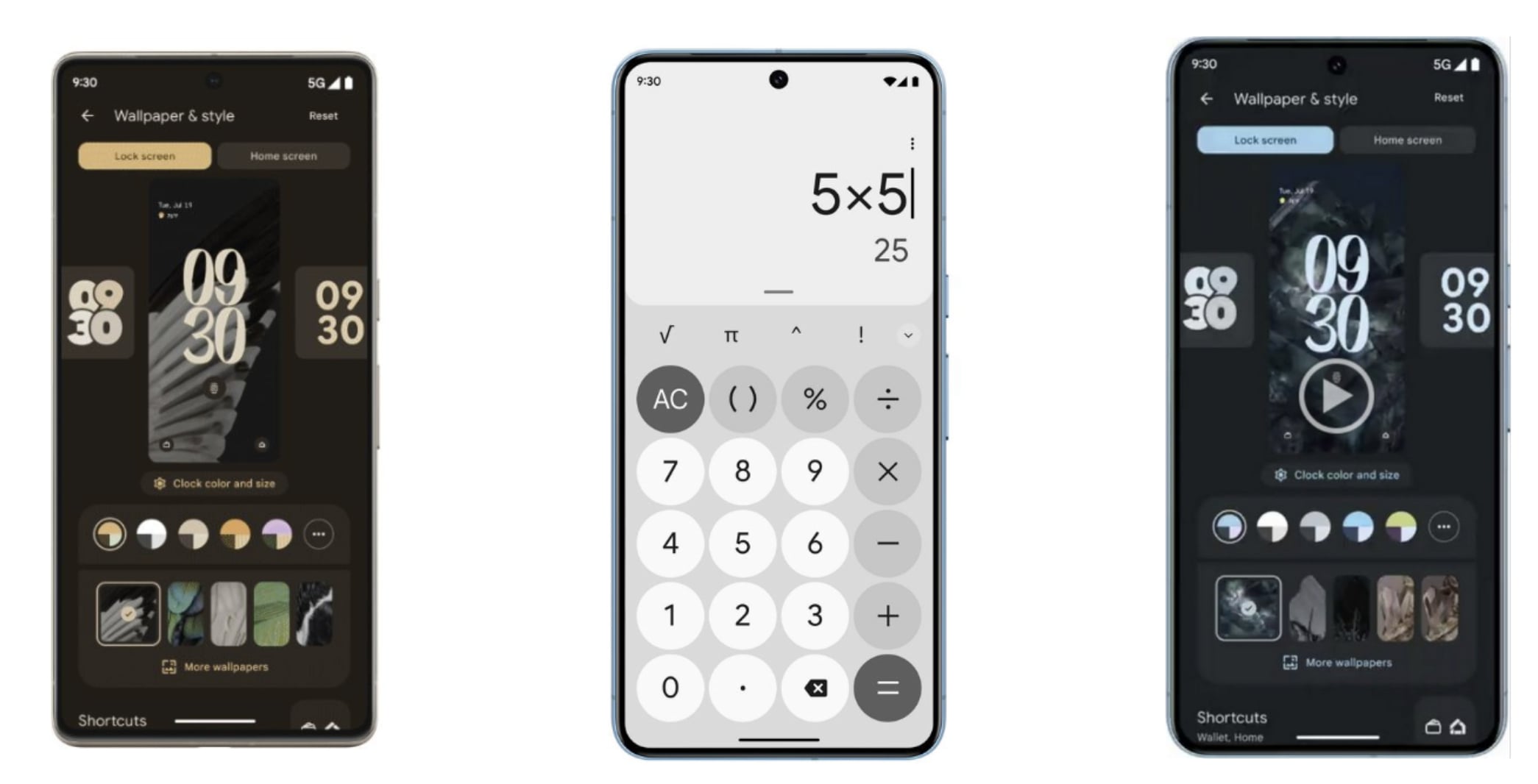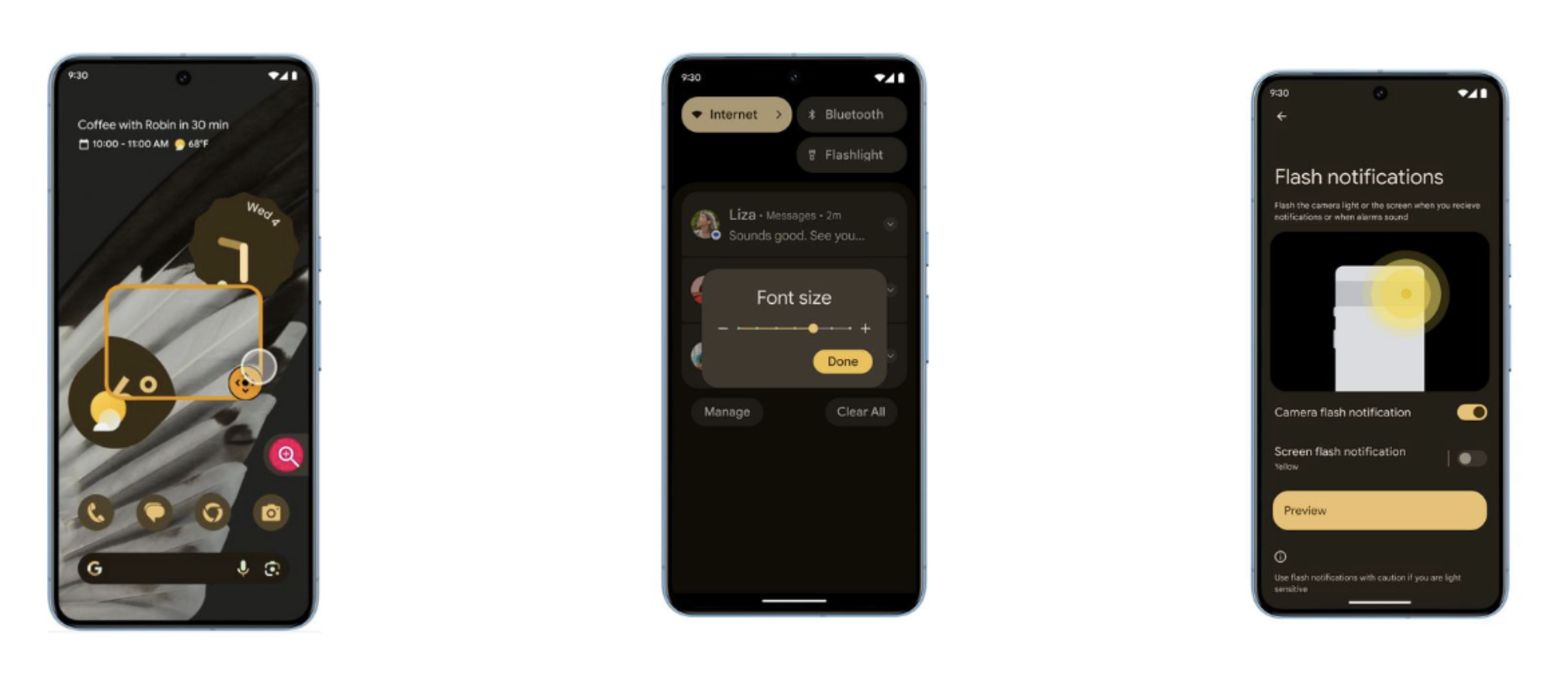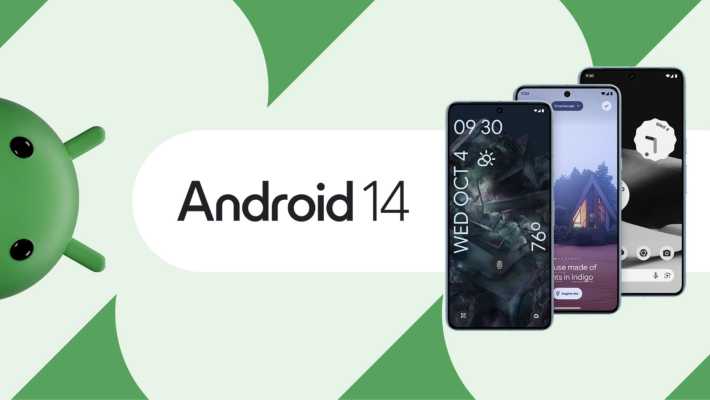Google unveiled Android 14 today at its Made By Google event in New York City. The company revealed that Android 14 comes with new customization options, accessibility features and more. Android 14 is starting to roll out to supported Pixel devices today, and will come to Samsung Galaxy, iQOO, Nothing, OnePlus, Oppo, Realme, Sharp, Sony, Tecno, Vivo and Xiaomi devices later this year.
The company is introducing new ways to customize your device to your personal preferences. Android 14’s updated customization picker is designed to make it easier for switching between wallpapers and quickly making changes to what you want to see at a glance. With the new software update, users can set custom lock screen shortcuts, like a QR reader or the Google Home app, in order to get one-tap access to their favorite apps or tools directly from the lock screen.
Users have the option choose from a set of new lock screen templates for fonts, widgets, colors and formats. Google notes that these templates use AI to make changes based on your current situation. For instance, if the area you’re in is about to experience bad weather, your lock screen will make your weather widget more prominent.
If you want something that’s easier on the eyes, you can select a monochromatic theme that Google says makes minimal colors look sleek across your device.

Image Credits: Google
Back in May, Google announced that it was working on generative AI wallpapers that users can create with suggested prompts. The company announced today that this feature is coming first to the Pixel 8 and 8 Pro. With this feature, Google is giving users the option to choose from pre-set suggestions to receive an AI-generated wallpaper.
The new software update also brings improvements to photo and camera quality. Google announced that Android 14 supports high dynamic range (HDR) images with Ultra HDR, building on Android 13’s support for HDR video. The company says the new enhancement brings out vibrant colors in photos and displays high-definition photos that don’t alter the original quality of an image.
Google also announced that Android 14 comes with new features and capabilities for users that have low-vision and are hard-of-hearing. The company has made the magnifier on Android 14 more intuitive, with the ability to pinch to zoom in and out from 100%. Plus, users can change the size of the magnifier via a new “Magnifier Settings” panel. There, users can also customize how much of the screen they want magnified. If you want to prevent the magnifier from being disabled when you switch between apps, there’s a new “Keep on when switching apps” setting that you can enable.
In addition, you can quickly change the font size of the text on your device with a new “Quick Settings” title, which enhances readability with nonlinear font scaling that enlarges larger font size at a slower rate than smaller size. Google says this feature prevents text that is already large enough from getting bigger than needed and allows users to read their screen without text getting cut off or breaking the page layout.

Image Credits: Google
Android 14 brings a dedicated hearing aid setup flow that allows for a more intuitive experience when connecting your hearing aids. There’s also an easy way to route audio to different outputs, along with the option to access hearing aid controls from a shortcut.
Notably, users can enable “Flash notifications” to get visual light flashes when you receive a notification. Google notes that notification sounds, rings and alerts aren’t effective to all users, which is why it’s introducing the new notification option.
The new update also brings more control over your data. For instance, when you are asked to grant apps permission to things like your location, you will be notified when an app is sharing location data with third parties. Google says you can then make a more informed decision on whether you would like to grant access. Plus, Android 14 encourages you to set a six-digit PIN in order to enhance device security. After typing in the correct six-digit (or longer) PIN, you no longer have to hit “enter,” as your device will automatically unlock.
Android 14 also brings other features like automatic framing in video calls and one-tap access to your Google Home controls.
